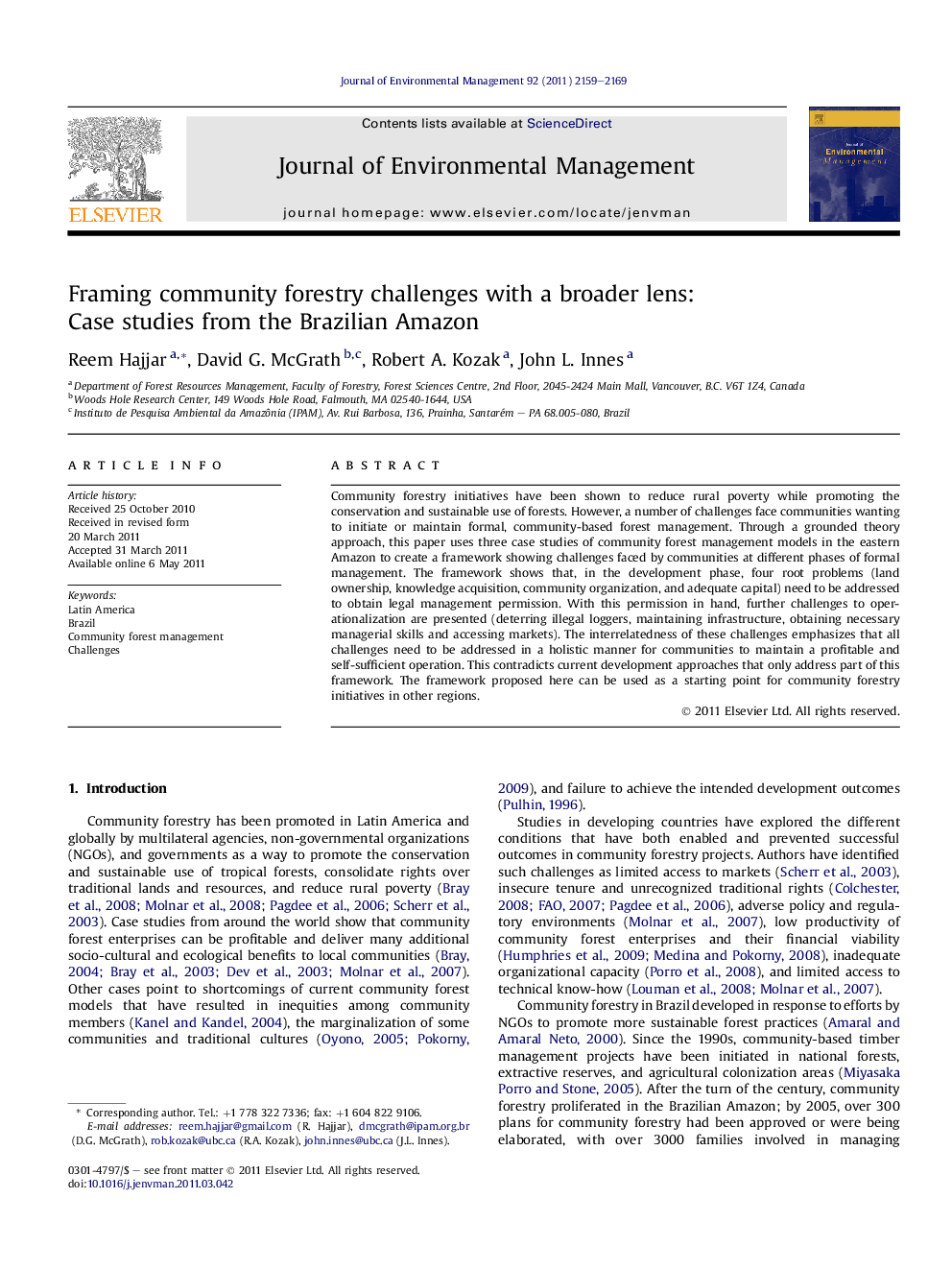| Article ID | Journal | Published Year | Pages | File Type |
|---|---|---|---|---|
| 1057000 | Journal of Environmental Management | 2011 | 11 Pages |
Community forestry initiatives have been shown to reduce rural poverty while promoting the conservation and sustainable use of forests. However, a number of challenges face communities wanting to initiate or maintain formal, community-based forest management. Through a grounded theory approach, this paper uses three case studies of community forest management models in the eastern Amazon to create a framework showing challenges faced by communities at different phases of formal management. The framework shows that, in the development phase, four root problems (land ownership, knowledge acquisition, community organization, and adequate capital) need to be addressed to obtain legal management permission. With this permission in hand, further challenges to operationalization are presented (deterring illegal loggers, maintaining infrastructure, obtaining necessary managerial skills and accessing markets). The interrelatedness of these challenges emphasizes that all challenges need to be addressed in a holistic manner for communities to maintain a profitable and self-sufficient operation. This contradicts current development approaches that only address part of this framework. The framework proposed here can be used as a starting point for community forestry initiatives in other regions.
Graphical abstractFigure optionsDownload full-size imageDownload as PowerPoint slideHighlights► Community forest enterprises face many developmental and operational challenges. ► A holistic approach is needed to reach the end point of a self-sufficient enterprise. ► Communities in Brazil have great difficulty in meeting the government’s regulatory requirements.
